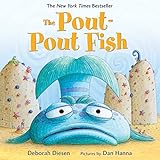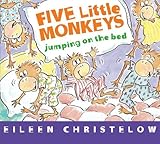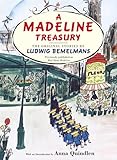
In A Thomas Jefferson Education by Oliver Van DeMille, the author presents the concept of a national book. A national book is something that almost everyone in the nation accepts as a central truth. At the time of our founding, the Bible and later The Declaration were our national books and remained so up until some time in the 1980s, as purported by the author, when we began failing to recognize a national book. Since then a national book has not replaced the Bible nor the Declaration of Independence.
The issue of a nation existing without a national book is that the nation becomes one without a shared culture, or at best in the process of losing it.
In 2020 we saw an attack on the founders and figures of our nation as monuments and statues of people such as Christopher Columbus, George Washington, Abraham Lincoln, and others were vandalized, removed, and in some cases destroyed. Now in the first few months of 2021 the printed word has come under attack. First as I will address in regards to Dr. Seuss and secondly in a book banned by Amazon last week.
Yesterday, March 2, 2021 the birthday of Dr. Seuss witnessed the demoralization of one of America’s most beloved children’s authors under the guise of accused racist publications. The Random House publishing company announced they would no longer publish six Dr. Seuss stories including: And to Think That I Saw It on Mulberry Street (1937), If I Ran the Zoo (1950), McElligot’s Pool, On Beyond Zebra!, Scrambled Eggs Super!, and The Cat’s Quizzer.
Our family owns and loves If I Ran The Zoo. The other titles on this list of newly banned books I am not familiar with. I have only scanned And to Think That I Saw It on Mulberry Street and had not even heard of these other books until this week. Frankly I am not a huge fan of Dr. Seuss for a few reasons pertaining to personal taste. However, our family values and semi-regularly reads a few of our favorite Dr. Seuss books: The Sneetches and Other Tales, If I Ran The Zoo, Thidwick the Big-Hearted Moose, Horton Hears a Who, The Foot Book, Mr. Brown Can Moo Can You?, and How the Grinch Stole Christmas! I have never once considered a Seuss book to be racist in general and primarily because most of his creatures are made up and nonsensical and therefore pertain to no race at all.
In addition to a national book, there are books which our society historically considers classics. I would put Dr. Seuss’ works for children into a more modern classic category. Certainly one in which all Americans can easily recognize central characters and quote a few lines of the text.
As summarized by Oliver Van DeMille, If we will let them, the classics can teach us lessons without the pain of repeating certain mistakes ourselves. They can show us correct choices which will get us where we want to go….The most challenging struggles of life are internal and the classics can help…. Classics help us connect with individuals whatever their race, creed, age, culture and even place in history.
Inarguably when I think of classic literature I lean more towards Dickens, Bronte, Alcott, Montgomery, A. A. Milne, Shakespeare, Austen, etc. However, concerning national, modern classics Dr. Seuss would certainly be at or near the top of that list.
A brief overview of three of Dr. Seuss’ books will highlight the messaging that Seuss books convey:
The Sneetches teaches a wonderful lesson about a community of creatures who gauge status on the presence or absence of a star on their belly. The story summarizes the futility of judging people on the basis of their outer appearance and rather understanding that we are all the same on the inside. I particularly love this book for its lesson on humanity and because of its phrase stars upon thars. It’s delightful to read aloud!
In Horton Hears a Who, we are admonished that a person’s a person no matter how small. I’ve considered this a pro-life message since I began reading the story to our children over a decade ago.
The Butter Battle Book published in 1984 is lauded as teaching tolerance and respect and I would further add that it is a cautionary tale of war. I couldn’t help think of the Cold War the one and only time that I read the book with my kids. It’s one I intend to revisit.
When we erase historical events and people in our history with whom we may or may not agree , we erase our national identity and our shared heritage of both the virtuous and the vile. Additionally, when we ban books and limit the free speech and expression of authors and artists we are weakening the ties that bind us as a culture and nation. We are stifling learning, discussion, debate, and connection within and among our people.
Last week Amazon removed the book When Harry Became Sally: Responding to the Transgender Moment by conservative author Ryan T. Anderson from their platform. This book was published in 2018 and had been sold on Amazon since its release at that time. You will want to listen to The Briefing with Al Mohler to summarize this topic and then to his interview with the author on Thinking In Public which took place in 2018.
Make no mistake, a minority of our population which communicates with the majority megaphone wants to dismantle our country’s heritage and further strip away all sacred beliefs exercised in the secular realm. Put another way, our country’s Judeo-Christian principles are systematically under siege and we must determine as a populous and as individuals where we will draw the line and upon what ground we stand on.
While Dr. Seuss and Ryan Anderson’s books are for two vastly different audiences and entirely different purposes the attacks on them come from the same point of reference: that which is deemed counter to the current woke narrative must be erased and silenced.
It is time we reencountered our original national book. It is the only one that will save mankind–God’s Word.
Let me go on record as saying: As for me and my house, we will serve the Lord. As for our home library, my husband and I will determine which literature to allow and what to ban for our family’s consumption. In the words of Martin Luther: Here I stand, I can do no other. God help me. Amen.

Please visit my online bookshop where you will find books for life. BrookesBookshop.com.




























































